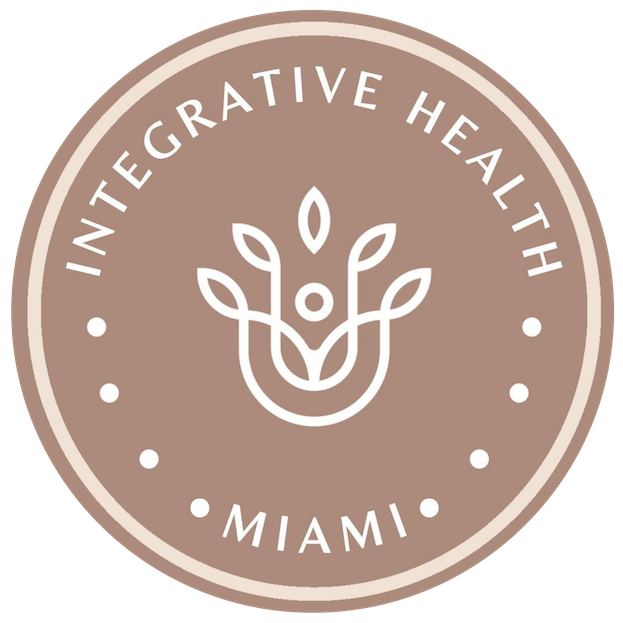What Advantages Does a Primary Care Physician Offer?
By Integrative Health Miami | Dr. Yeisel Barquin
A primary care physician provides comprehensive care beyond just medical emergencies. They play a crucial part in your well-being and provide various services, including preventive care, health screenings, management of chronic conditions, and treatment for acute illnesses. With their expertise in multiple areas of medicine, primary care physicians establish long-term relationships with patients, gaining a deep understanding of their lifestyle, medical history, and healthcare needs. This personalized approach enables them to offer tailored guidance, coordinate specialist care when necessary, and promote overall wellness and disease prevention. Having a primary care physician promotes continuity of treatment and timely access to healthcare, which improves patient satisfaction and health outcomes.

Dr. Yeisel Barquin of Integrative Health Miami is a primary care physician in Miami, FL. She makes a point of paying attention to her patients and learning about their health goals, which enables her to choose the most effective course of treatment. She gives each patient her whole attention, applying her knowledge and skills to correctly diagnose and treat current medical issues and spot potential preventative measures. Each patient has a customized treatment plan made to meet their unique requirements.
For More Information,
Call Integrative Health Miami
at
(305) 456-6026 Today
Advantages of Having a Primary Care Physician
Here are some of the top benefits of having a designated primary care physician:
Early Identification of Health Problems
Asthma, diabetes, and cancer are among the chronic illnesses that primary care physicians are often the first to recognize. Because they see their patients regularly, they will take their vital signs, order blood tests, and evaluate them. They’ll also ask you questions about your life and take detailed notes about what they’ve found.
For example:
- Are you under a lot of stress right now?
- Do you consume healthy foods?
- Do you exercise enough?
- Are you taking your medications as your doctor has prescribed?
Your primary care physician is the best person to help determine the next course of action if anything changes between appointments. Having a primary care physician also gives you someone to contact in case something seems wrong, like after a fall or when you’re unsure what to do. They act as your link to the healthcare system and care about your general health and well-being.

Continuity of Care
You should receive comprehensive care from your primary care physician. The recommended frequency of trips to your healthcare provider may vary based on individual health needs and guidelines. However, as a general guideline, scheduling at least four visits per year with your provider is advisable. Regular examinations allow you the chance to build a rapport with your physician. They learn more about you and your needs as a result. Your primary care physician can create a baseline for your health over time, which enables them to diagnose conditions earlier and treat patients more precisely. Together with your specialists, your primary care physician helps you decide on the best course of action.
Medication Administration
In terms of health management, older adults are more likely to have prescriptions for various ailments compared to younger people. More than half of people 65 and older say they use four or more prescription medications, and nearly nine out of ten say they take at least one. (Kaiser Family Foundation, 2019) Different physicians and specialists often write a large number of prescriptions, such as for managing multiple chronic conditions. It can dramatically increase the possibility of adverse consequences and drug interactions. By serving as a gatekeeper, your primary care physician can assist you in managing your prescriptions. They will monitor for any adverse effects and adjust the frequency or dosage. To correctly manage your drug regimen, your primary care physician will collaborate with your prescribing physician to iron out any pharmaceutical contraindications.
Time and Money Savings
Having a primary care physician has several advantages. It can reduce the time you spend seeing other doctors and the costs and bills associated with medical care because your primary care physician is your one-stop shop for all things healthcare-related. Not only can visiting an emergency hospital or urgent care center take time, but it can also be costly.
When a non-life-threatening emergency arises, most established patients can schedule same-day appointments with their primary care physician. At Integrative Health Miami, we advise patients to call us beforehand. We provide same-day appointments for urgent care for those unforeseen situations and illnesses. Reduced use of pointless tests and treatments contributes to lower medical expenses.

Preventative Care with a Primary Care Physician
Getting and maintaining your health should be the primary objective of your primary care physician. Preventative care helps to achieve this. Your primary care physician can assess your risk of getting some chronic conditions, like diabetes, cancer, and heart disease, thanks to your contact with them. Your primary care physician can offer healthcare choices, such as lifestyle modifications, to lower your risk and keep you from getting sick based on your risk assessment. Additionally, they can use prevention to control any already present diseases.
Health and Wellness Advocate
There are moments when you may feel entirely on your own and responsible for handling your health issues alone. You’re never alone when you have a primary care physician like Dr. Yeisel Barquin of Integrative Health Miami, who is committed and compassionate. Together with your healthcare practitioner, you can achieve better health. Your primary care physician needs you to be as happy and healthy as possible; they are not just concerned with your ailments or diseases. They serve as your advocate for healthcare and as a resource for knowledge on topics like stress and anxiety management, alcohol and drug abuse prevention, smoking cessation, and nutrition and weight control.
Frequently Asked Questions
What Is a Primary Care Physician?
A primary care physician is a vital resource for maintaining your health. They play a crucial role in assisting you in leading a better life and are frequently the first point of contact you or your family members have with the healthcare system. In addition to encouraging improved health, they offer care for common illnesses—preventing, treating, and curing them. According to research, the availability of primary care has a positive and direct impact on health and well-being.
What Does a Primary Care Physician Do?
A primary care physician provides general healthcare to patients, attending to various health issues. When you have a health problem, you usually talk to them first. Primary care physicians are consulted for:
- Preventing illness before it occurs with preventive care
- Management of common diseases
- Early diagnosis of diseases or ailments (like cancer)
- Treatment of persistent or chronic illnesses
- A recommendation for a specialist
Many people see their primary care physician for years at a time. A friendship begins to take shape as a trusting bond grows stronger. It is not unusual for a family to visit the same physician for generations. This enables the physician to get to know the family as people instead of just a patient file. Familiarity gives doctors additional knowledge, which allows them to provide more individualized care.
What Is the Difference Between a Primary Care Physician and a Specialist?
The difference between a primary care physician and a specialist is that a primary care physician provides general medical care for several health issues. In contrast, a specialist focuses on specific areas of medicine, such as cardiology or dermatology.
How Often Should I See My Primary Care Physician?
The frequency of your visit to your primary care physician depends on your age, overall health, and medical history. It is typically once a year for a routine check-up and more frequently if you have chronic conditions or other health concerns.
Primary Care Physician in Miami, FL
Being proactive is necessary to embark on a lifelong road toward achieving excellent health. Making preventative care a top priority is one of the finest ways to take control of your health. It includes ensuring you have routine examinations, tests, and immunizations so the physician can evaluate you and assist in preventing any potential health problems before they become serious.
Dr. Yeisel Barquin of Integrative Health Miami is a well-known primary care physician in Miami, FL. She is dedicated to giving you the individualized primary care and support you require to flourish. Make an appointment with her right now to start on the path to a healthier, happier you.
Call Integrative Health Miami at (305) 456-6026 Today
Integrative Health Miami
40 SW 13th St Suite
#904, Miami, FL 33130, United States
(305) 456-6026
Ashley Kirzinger, Tricia Neuman. “Data Note: Prescription Drugs and Older Adults.” KFF, Kaiser Family Foundation, 9 Aug. 2019, www.kff.org/affordable-care-act/issue-brief/data-note-prescription-drugs-and-older-adults/.
Our Services
Looking for a Primary Care Doctor?
Contact Dr. Barquin
- Dr. Yeisel Barquin
- (305) 456-6026
- drbarquin@eudaimoniamiami.com
- 40 SW 13th St Suite #904, Miami, FL 33130, United States
